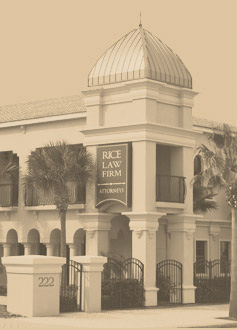Does Adultery Affect a Divorce in Florida
As a divorce attorney with over 30 years of experience, I can tell you first hand that marital infidelity is the number one cause for the breakup of marriages. While a researcher might say my evidence is anecdotal, client after client appears for their initial divorce consultation asking, “Does it matter that my spouse is cheating on me?” The short answer is no.
Florida is a no-fault divorce state. In other words, Florida law does not require either spouse to have “grounds” to get a divorce. In some states, the law requires the petitioning spouse to prove grounds such as adultery, mental cruelty, abandonment, etc. Florida only requires the divorcing spouse to prove that “the marriage is irretrievably broken.” Fla. Stat. 61.052.
Clients frequently ask whether adultery can affect the outcome of an alimony award. The short answer, again, is no…with some qualifications. Alimony in Florida is described in Fla. Stat. 61.08, which states, in part, that “The court may consider the adultery of either spouse and the circumstances thereof in determining the amount of alimony, if any, to be awarded.” Based on this language, a person would reasonably expect the marital infidelity of their spouse to play a big role in the divorce case. Despite the language in the alimony statute, Florida courts have held that adultery is only relevant if the cheating spouse spent or dissipated marital funds pursuing this extramarital relationship. If this did occur, the innocent spouse can recoup 50% of those funds in the equitable distribution scheme. Punitive alimony is prohibited in Florida, meaning that the court will not enhance or decrease the alimony award because the payor or payee spouse was cheating.
As the Eagles sang in 1975, “ But he knows where she’s goin’ as she’s leavin’. She is headed for the cheatin’ side of town. You can’t hide your lyin’ eyes…” Whether or not he or she is heading to that side of town, you can write Paul Rice at PaulRice@ricelawflorida.com or call his office at 386-257-1222 if you’d like to discuss your divorce case or alimony issue.

Bookmark & Share
User Comments
Be the first to comment on this post below!
Previous Article
Most Popular Articles
- Who Gets the Engagement and Wedding Rings in the Divorce?
- Frequently Asked Questions Regarding Retirement Accounts in Florida Divorce Cases
- Alimony Reform in Florida Brewing Again in Legislature
- Florida Divorce Procedure
- Supportive Relationships in Florida and Effect on Alimony
- Why Should I Pay for an Initial Divorce Consultation if Other Attorneys Offer Them for Free?
- Debt Which Husband Obtained by Forging Wife?s Name was Declared His Non-Marital Debt
- Appellate Court Rules Judge Can?t Choose One Parent?s Religious Beliefs Over the Other?s

